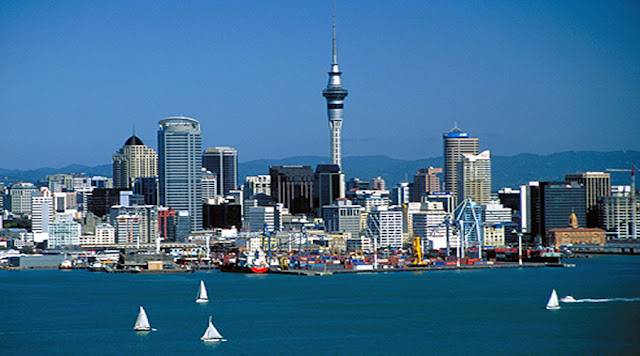New Zealand Implements Stricter Visa Rules in Response to Soaring Migration Levels
In the wake of record-high migration, New Zealand is taking steps to tighten its visa rules for certain migrants, aiming to address what the coalition government identifies as "unsustainable" migration levels. With an influx of over 173,000 non-New Zealand citizens in 2023, the country has seen a surge in migrant numbers, prompting the government to reevaluate its immigration system.
Immigration Minister Erica Stanford recently announced changes to the accredited employer worker visa (AEWV), the primary temporary work visa introduced in 2022 to alleviate workforce shortages following the pandemic. These changes entail the implementation of English-language requirements for low-skilled jobs, as well as the establishment of a minimum skills and work experience threshold for most employer work visas. Moreover, the maximum continuous stay for most low-skilled roles will be reduced from five years to three years, effective immediately.
Stanford emphasized the government's commitment to attracting and retaining highly skilled migrants, particularly in professions facing shortages such as secondary teachers, while also prioritizing New Zealanders for jobs not experiencing skills shortages. These measures reflect the government's efforts to strike a balance between addressing labor needs and safeguarding employment opportunities for local residents.
The rapid growth in migrant numbers since the pandemic's conclusion has raised concerns about inflation, prompting a Reserve Bank-commissioned report to investigate the potential correlation between migration levels and inflation. The inconclusiveness of this report underscores the complexity of the issue, further underscoring the importance of implementing measures to mitigate potential adverse effects of heightened migration levels.
In addition to addressing economic considerations, the changes are also intended to enhance the protection of migrants against exploitation. A review of the AEWV scheme revealed instances of exploitation, prompting the government to introduce English-language requirements to empower migrants to assert their rights and voice concerns about their employers.
Furthermore, plans to add 11 new roles to the Green List, encompassing highly skilled positions that New Zealand struggles to fill, have been shelved. This decision reflects the government's evolving approach to managing migration and aligning it with the country's labor needs.
As New Zealand endeavors to recalibrate its immigration system, neighboring Australia has also announced plans to reduce its migrant intake over the next two years, indicating a broader trend of countries reevaluating their immigration policies.
News Agencies

